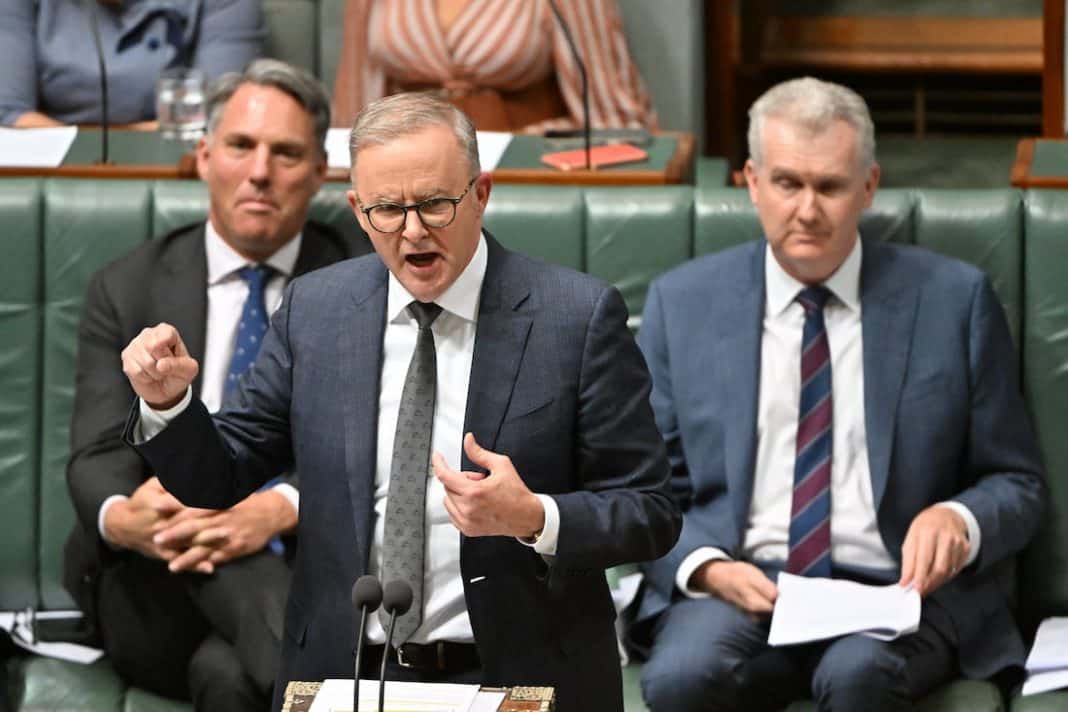Anthony Albanese is urging members of his party to help minimise scare campaigns in the lead-up to a referendum to enshrine an Indigenous voice to parliament.
Using a history lesson to illustrate his point, the prime minister warned his party room of the challenges to come.
Mr Albanese said a successful referendum had not been held in 50 years and only 20 per cent of the referendums put by Labor had been carried.
He also said historically there had been no successful referendums without bipartisan support.
The government is aiming to finalise laws that will set out rules around the distribution of referendum information and political donations.
Legislation outlining the referendum’s processes is before the Senate, where the coalition, Greens and independents are seeking changes they say will protect against foreign interference and make the vote fairer.
Speaking on the referendum machinery bill, independent senator Jacqui Lambie said practical measures were needed to support Indigenous communities.
“The minister says having a voice will fix those issues,” she told parliament on Tuesday.
“That’s all well and good, but we need solutions today.”
At a coalition party room meeting, MPs and senators expressed concern they would not secure any of the outcomes they wanted if the government negotiated a pathway with the Greens to pass the machinery bill.
Opposition Leader Peter Dutton told his party room that negotiations with the government needed to ensure the best chance for a fair campaign.
If the coalition does not support the bill, the government will need the Greens and two other votes to pass it.
The Greens want changes to increase voter enrolment and make campaign donations more transparent.
Another amendment proposed to remove restrictions that prevent prisoners from voting.
Greens senator Larissa Waters said the government had an opportunity to fix decades of voter disenfranchisement particularly among Indigenous communities.
“Voting is a right, not a privilege,” she said.
“Restricting the rights of people in prison disproportionately affects marginalised communities, including First Nations people who are over-incarcerated and under-represented on the electoral roll.”
A second bill outlining the proposed constitutional change is expected to go to parliament as early as next week.
By Maeve Bannister in Canberra



